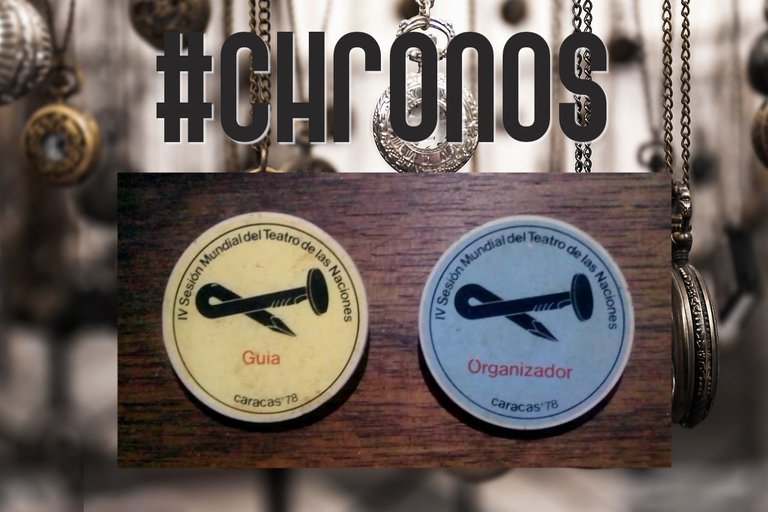
Aunque este espacio en el que publico mis vivencias en forma de crónica literaria, no llevan un orden cronológico de una historia a otra, he querido hacer un paréntesis y en un solo título agrupar tres experiencias. Cada una de ellas muy distinta de la otra y como tal llevarán una narrativa diferente, pero dado que fueron tres sucesos que tuvieron ese orden en mi vida, los quiero presentar en secuencia.
Así que hoy les comparto la primera parte de esta historia que he titulado "Un evento teatral, un vuelo y París".
Although this space in which I publish my experiences in the form of a literary chronicle does not follow a chronological order from one story to another, I wanted to make a parenthesis and group three experiences in a single title. Each one of them very different from the other and as such will have a different narrative, but since they were three events that did have that order in my life, I want to present them in sequence.
So today I share with you the first part of this story which I have titled "A theatrical event, a flight and Paris".
English version below!

¡En 1978 el teatro en América y yo dimos un salto cualitativo!
Hasta ese momento solo Europa había tenido el privilegio de albergar la Sesión Mundial del Teatro de las Naciones, eventos de máxima significación en el campo de las tablas, pues en ellas se reunían los más altos representantes de esta forma de arte a discutir las teorías teatrales y a trazarse metas para un desarrollo global.
Hasta ese momento, yo, que por causas muy personales había abandonado los estudios formales, había estado haciendo mis primeros aportes en el campo laboral, aunque en el nivel de personal no calificado. Había trabajado en bancos y en el área de reproducción de varias empresas organizadoras de eventos.
La UNESCO decidió que la IV Sesión Mundial de Teatro de las Naciones se desarrollaría en Caracas y así empezaron los preparativos, en los cuales la mayor parte del peso recaía sobre el Grupo Rajatablas, dirigido por Carlos Giménez, el Ateneo de Caracas, presidido por María Teresa Castillo y el Centro Venezolano del Instituto Internacional de Teatro, donde mi papá, Humberto Orsini, era la figura principal.
Entre un batallón de personas de teatro y de organización de eventos, se hizo la selección para conformar los diferentes frentes de trabajo, pues aparte de un festival de teatro con la participación de grupos internacionales, también se desarrollarían interesante conferencias y talleres. Una de las grandes atracciones del evento sería la exposición “Gran Teatro del Mundo”, una megaexposición en unos espacios llamados Zona Rental de Plaza Venezuela, con la participación de once países, entre los cuales España era el invitado de honor, pues la exposición homenajeaba al escritor español Valle-Inclán. Entre los 22 guías que estarían en esta exposición, quedé incluido yo, quien atendería la exposición de la República Democrática Alemana, dedicada a Bertolt Brecht y al Berliner Ensemble.
Caracas se vistió de fiesta y el teatro empezó a invadir todos sus rincones. Lo mismo empecé a hacer yo en la exposición, desde el momento en que empezaron los preparativos. Aunque yo había estado limitado en trabajos previos a solo algunas áreas de producción de eventos, había entendido el funcionamiento y pronto tenía dominio y control de todo lo que pasaba en la exposición, lo cual permitió que de ser solo un guía más, pasé a ser el coordinador de todos ellos, de guía a organizador.
La IV Sesión Mundial de Teatro de las Naciones, aunque estuvo desde junio en talleres y conferencias preliminares, tuvo su inauguración oficial el domingo 2 de julio de 1978, el mismo momento en que yo me graduaba como coordinador de guías de un evento internacional. Parte del acto protocolar fue la inauguración presidencial, con corte de cinta y brindis en las instalaciones donde se desarrollaba la Expo.
Diariamente los habitantes de Caracas y todos aquellos que se dieron cita en la capital del teatro mundial en ese momento, recorrían las salas de teatro en las que las más afamadas agrupaciones del mundo daban muestra de sus creaciones, las salas de conferencia en la que los eruditos discutían los legados de Stanislavsky, Meyerhold, Brecht y Piscator y dilucidaban el futuro del teatro del Tercer Mundo.
Diariamente yo acompañaba a los visitantes y apoyaba a los guías que explicaban los contenidos de las exposiciones de la RDA, Italia, Francia, España, Cuba, Gran Bretaña, Checoslovaquia, la URSS, Estados Unidos, Hungría, Polonia y, por supuesto, Venezuela.
La parte más extensa del evento fue la exposición que se llevó cerca de dos meses, desde los preparativos, hasta el desmontaje.
Toda la ciudad estaba impregnada de una sensación de “culturalidad”, se respiraba teatro en todas partes, hubo un acercamiento entre la gente de la ciudad, los que trabajamos en la organización nos hicimos amigos, y todos compartíamos las experiencias vividas en esos días intensos.
Finalmente llegó la fecha de clausura y empezó la partida de los invitados internacionales, poco a poco el número de participantes se hacía más pequeño y algunos equipos de trabajo cesaban sus funciones. Día a día se iba apagando esa gran fiesta internacional.
Una vez se fueron los últimos cargamentos de la exposición, lo último que quedaba de la Sesión, hubo la vuelta a la vida regular, a la rutina.
Pero el teatro había dejado una huella y un impacto tan profundo, que durante casi 20 años Caracas pasó a ser la sede de los más importantes festivales de teatro a nivel mundial, con un prestigio y una presencia no vista en ninguna otra parte del mundo, primero con el Festival Internacional de Teatro de Caracas y años más tarde también con el Festival Internacional de Teatro de Oriente.
Para mí significó la primera oportunidad como coordinador de guías, una función que conservé en casi todos las ediciones de estos dos festivales y que sembraron las bases para, más adelante, convertirme en productor de eventos internacionales.
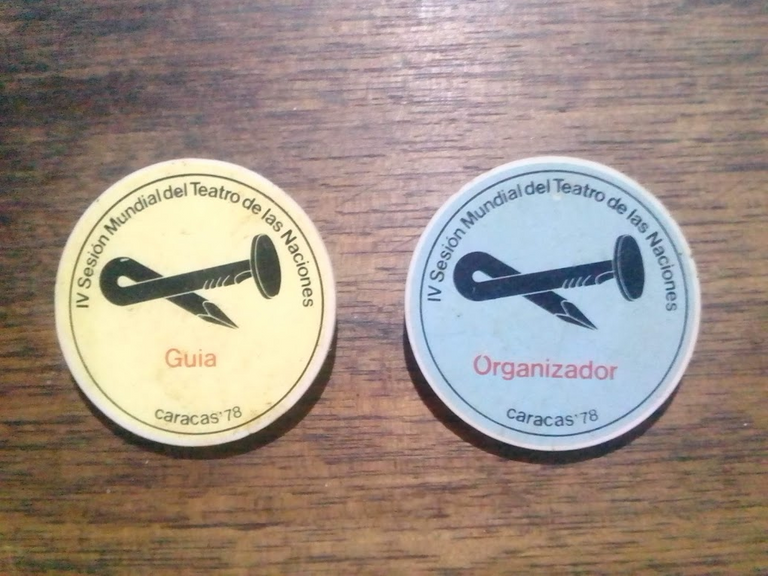
Fotos propias tomadas con Blu G5 | Own picture taken with Blu G5

English version
In 1978 the theater in America and I took a qualitative leap!
Until that moment, only Europe had had the privilege of hosting the World Session of the Theater of Nations, events of maximum significance in the field of the tables, since they brought together the highest representatives of this art form to discuss the theatrical theories and to set goals for a global development.
Up to that moment, I, who for very personal reasons had abandoned formal studies, had been making my first contributions in the labor field, although at the level of unqualified personnel. I had worked in banks and in the reproduction area of several event organizing companies.
UNESCO decided that the IV World Session of the Theater of Nations would be held in Caracas and so the preparations began, in which most of the weight fell on the Rajatablas Group, directed by Carlos Giménez, the Ateneo de Caracas, presided by María Teresa Castillo and the Venezuelan Center of the International Theater Institute, where my father, Humberto Orsini, was the main figure.
Among a battalion of theater people and event organizers, the selection was made to form the different work fronts, because apart from a theater festival with the participation of international groups, there would also be interesting conferences and workshops. One of the great attractions of the event would be the exhibition "Great Theater of the World", a mega-exhibition in a space called the Rental Zone of Plaza Venezuela, with the participation of eleven countries, among which Spain was the guest of honor, as the exhibition paid homage to the Spanish writer Valle-Inclán. Among the 22 guides who would be in this exhibition, I was included, who would attend the exhibition of the German Democratic Republic, dedicated to Bertolt Brecht and the Berliner Ensemble.
Caracas was dressed for a party and the theater began to invade every corner of the city. I started to do the same in the exhibition, from the moment the preparations began. Although I had been limited in previous jobs to only a few areas of event production, I had understood how it worked and soon I had mastery and control of everything that happened in the exhibition, which allowed me to go from being just another guide to being the coordinator of all of them, from guide to organizer.
The IV World Session of Theater of Nations, although it had been in workshops and preliminary conferences since June, had its official inauguration on Sunday, July 2, 1978, the same moment in which I graduated as coordinator of guides of an international event. Part of the protocol act was the presidential inauguration, with a ribbon cutting and toast in the facilities where the Expo was being held.
Every day the inhabitants of Caracas and all those who gathered in the capital of world theater at that time, toured the theaters where the most famous groups in the world showed their creations, the conference rooms where scholars discussed the legacies of Stanislavsky, Meyerhold, Brecht and Piscator and elucidated the future of the theater of the Third World.
On a daily basis I accompanied the visitors and supported the guides who explained the contents of the exhibitions from the GDR, Italy, France, Spain, Cuba, Great Britain, Czechoslovakia, the USSR, the USA, Hungary, Poland and, of course, Venezuela.
The most extensive part of the event was the exhibition, which took about two months, from the preparations to the dismantling.
The whole city was impregnated with a feeling of "culturality", one could breathe theater everywhere, there was a rapprochement between the people of the city, those of us who worked in the organization became friends, and we all shared the experiences lived in those intense days.
Finally the closing date arrived and the departure of the international guests began, little by little the number of participants became smaller and some work teams ceased their functions. Day by day this great international party was fading away.
Once the last shipments of the exhibition were gone, the last of the festival, there was a return to regular life, to routine.
But the theater had left such a deep mark and impact that for almost 20 years Caracas became the venue of the most important theater festivals worldwide, with a prestige and a presence not seen anywhere else in the world, first with the International Theater Festival of Caracas and years later also with the International Theater Festival of the East.
For me it meant the first opportunity as a guide coordinator, a role that I kept in almost all the editions of these two festivals and that laid the foundations to, later on, become a producer of international events.
Fuente de las imágenes || Image sources [1]

Este texto pertenece a mi serie #Chronos. Puedes leer más sobre la misma en Mis crónicas literarias. Si es de tu agrado este estilo y quieres sumarte a la creación de crónicas literarias, te invito a usar la etiqueta #chronos para la misma.
This writing is part of my series #Chronos. You can read more about it on My literary chronicles. If you like this style and want to join the creation of literary chronicles, I invite you to use the hashtag #chronos for it.

Descarga el poemario de @Ylich"De la vida, la pasión y de la muerte"¡Haz clic aquí! | 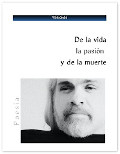 |
|---|

If you don't have an account at Hive yet, I invite you to read my post My Hive Testimony || Mi testimonio Hive
Si aún no tienes cuenta en Hive te invito a leer mi publicación My Hive Testimony || Mi testimonio Hive

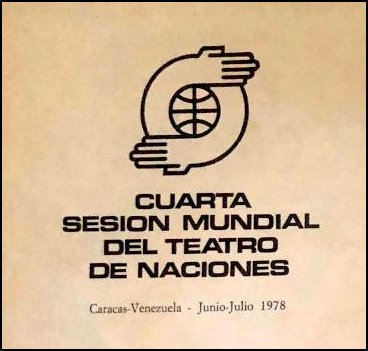
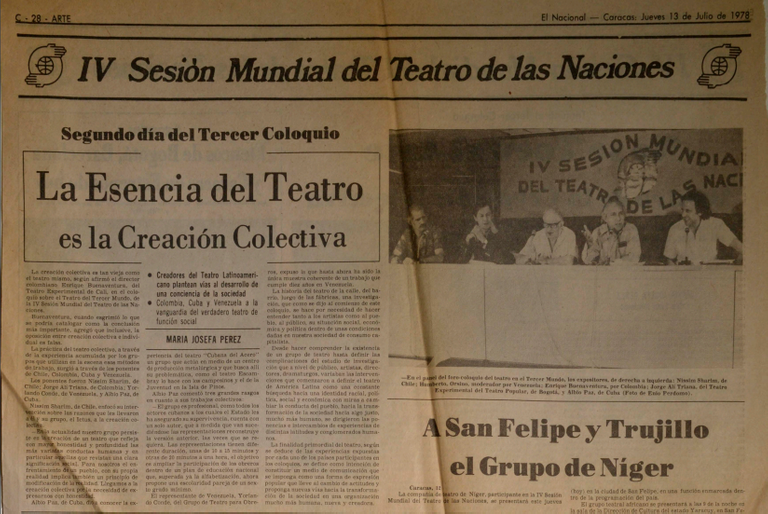
Ésto está maravilloso, no lo había visto. Te felicito!
Jejeje, muchas gracias.